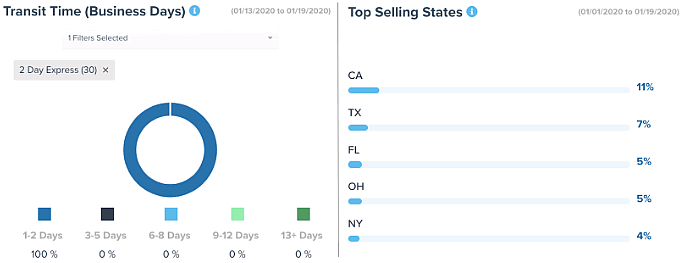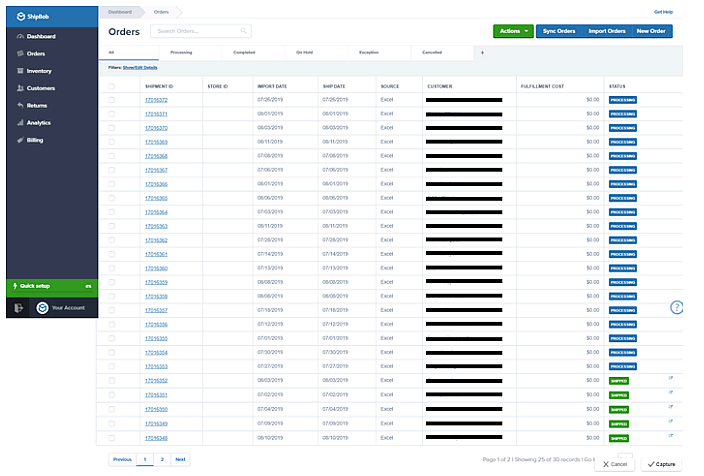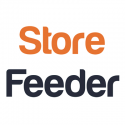Do you want an integral solution to the logistics of your online sales? Well, that's exactly what ShipBob is about.
Table of Contents
You only have to connect your shop to their service, set up your account preferences, and send the products to their different logistics warehouses so that, once the orders are received, they are processed, picked, packed and put on route to the final customer.
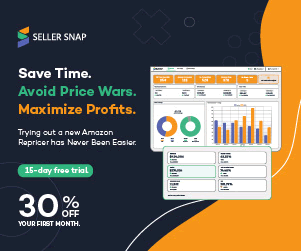
We could say that it works in a similar way to FBA but outside Amazon, so we would manage all of our sales channels from this single logistics platform.
Shipbob features
It may seem like a very radical change in the internal processes of a company, but in reality you will see that, with few but powerful utilities, they are able to simplify this whole aspect to a great extent.
Easy onboarding
It is not only simple but also done in a guided way as they make their implementation team available to new customers.
They are the ones who help you connect your shop with ShipBob from the beginning among other account configuration steps and, as we will see later, they are more than used to doing it with the different platforms on the market.
Multiple logistics warehouses
To be efficient at the level you require, it is necessary for a company like this to have several warehouses from which to distribute to different zones. This is basic for optimal time and cost.
When you sign up for their service, you will be able to decide how much of your inventory you send to one or several of their fulfillment centers, so that their own algorithm can decide from which of them to send each shipment to ensure that it is delivered using the fastest route and which carrier offers the best rates.
Order management
In its backend you have access to a complete order management tool. Here you can see all the orders that have come in the system and filter them according to different parameters such as the state of the order (between picked, packed or shipped) or aspects of the order such as weight, dimensions or transport company. In this way it is easy to control any important aspect.
The tracking that it generates can be pushed back to your store to share easily and automatically with your customers so that it is 100% transparent for all involved.
Inventory management
Outsourcing logistics to a 3PL always requires special attention to inventory. You always have to be clear about how many items are available at each logistics base so you don't lose sales opportunities or commit to sold out units.
In ShipBob this is solved with a simple control panel visually but very deep in the amount of data and always synchronized with the different warehouses.
In addition it goes beyond being a reactive solution in which data is consulted, it has different automations such as low stock notifications or low rotation alerts for certain products.
Reporting and analytics
As you can imagine, ShipBob offers a great deal of control and has a very robust and complete reporting system. It has charts that provide data on:
- Revenue by shipping method
- How many days you have left until a SKU will be out of stock
- Stock levels at any point in time by any location
- Which states and countries you ship to most often
- Shipping costs if you switched fulfillment center locations
- Days in transit by shipping method
- Fulfillment cost per order
- Cost of storage per unit
- And more…
You will get a very complete view of how one of the most critical parts of your business is working and, thanks to this data, you will have arguments to make decisions.
Efficient returns system
Although we don't like it that much, the truth is that returns are part of online sales and have an impact on the customer experience. A good policy in this sense helps to sell more and to do it in a recurrent way.
ShipBob helps to make this easy for customers by allowing them to print return labels very simply (or have end customers get their own label) and also offers them to track the status of their return to generate more confidence. In the meantime, they manage the collection of the product in their fulfillment centers and return them back into inventory when possible. You can also choose to have it disposed or quarantined, or have returns mailed to you directly to inspect.
In-house or branded packaging
By default within the commercial agreement, they include standard plain n packaging material (boxes, adhesive tapes, protectors and fillers).
However, if we want to make the unboxing experience more brand-related, we can send them our material and they will use it to prepare the shipments (boxes, mailers, inserts, etc.). The only extra cost this entails is storage.
Integrations
Logically ShipBob is a tool that integrates with Amazon, but its ecosystem is much larger.
We see how it integrates with eCommerce platforms such as Shopify, Wix, Squarespace, WooCommerce or BigCommerce, and others but also with marketplaces such as eBay, Walmart or the aforementioned Amazon.
The truth is that in this aspect it is very powerful and there are dozens of options in different platforms and eCommerce tools with which it communicates easily.
ShipBob pricing
The exact shipment pricing is a bit tricky, especially because a part of the fee corresponds to the carrier and cannot be provided if you do not know exactly the dimensions, weights and destination of each order.
However another part of ShipBob pricing is “standard” with fees like:
- Receipt of inventory: $25 for the first two hours to receive in their fulfillment center
- Storage: $40 per pallet, $10 per shelf and $5 per drum (all monthly)
- Pick and Pack: free until the sixth item in an order, which is $0.20 for the sixth pick and after.
- Standard packaging: free.
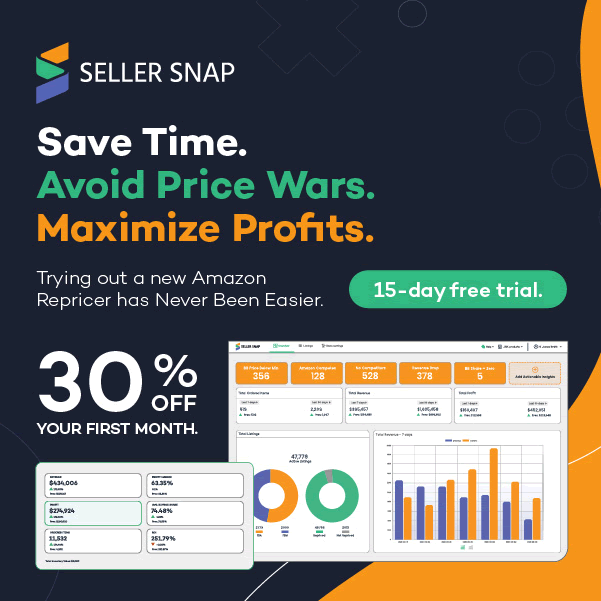
Trial
They do not have a trial, though you can create an account, connect your store, and play around in their software before becoming a paying customer.
ShipBob review
ShipBob is a very good solution as a logistics tool, as it actually offers much more than other 3PL services. One of the most important aspects is that it helps us to enhance the user experience so that, in an indirect way, we sell more and have more chances to build customer loyalty.
Nor can we forget the savings it represents, especially in our own team's working hours, which can be allocated to other more productive aspects of the business.
It is a suitable tool for almost all eCommerce brands but it is true that there are some people who do not feel comfortable delegating such an important part of the business to a third party and require total in-house control of the processes.
Our score
- Number of features (5)
- Pricing (5)
- Learning curve (5)
- User friendly (5)
Alternatives to ShipBob
Here you can find the top ShipBobs alternatives
About the author
Jordi Ordonez
I’m an independent eCommerce and Amazon consultant.
Clients
I've worked with brands like Estrella Damm, Intersport, Bella Aurora, Lladró, Textura Interiors, Nice Things Palomas, Castañer, Due-Home, and many others.
Lecturer & Teacher
I’ve spoken and taught at events such as Meet Magento, PrestaShop Day, SEMrush, Cambra de Comerç Barcelona, ClinicSEO, EcommBeers, EcommBrunch, Ecommercetour.com, EcommFest, EOI, ESIC-ICEMD, Foxize, Generalitat de Catalunya, Inesdi, Quondos, and The Valley. I’ve also delivered in-company training sessions for major brands like Orange and Adidas.
Writer
I regularly contribute articles to the Helium 10 blog, Shopify, SEMrush, La Vanguardia, eCommerce News, Marketing4ecommerce, and others.
Partner
Helium 10, Jungle Scout, Avask, Helium 10 Seller Solutions Hub Partner, SaaS4Marketing, H10-wp.com, FBASuite.com, and a Trusted Partner of Tracefuse.
Social
LinkedIn, Twitter, Wikipedia, YouTube, Quora, ISNI 0000000513224289, About Jordi Ordonez
